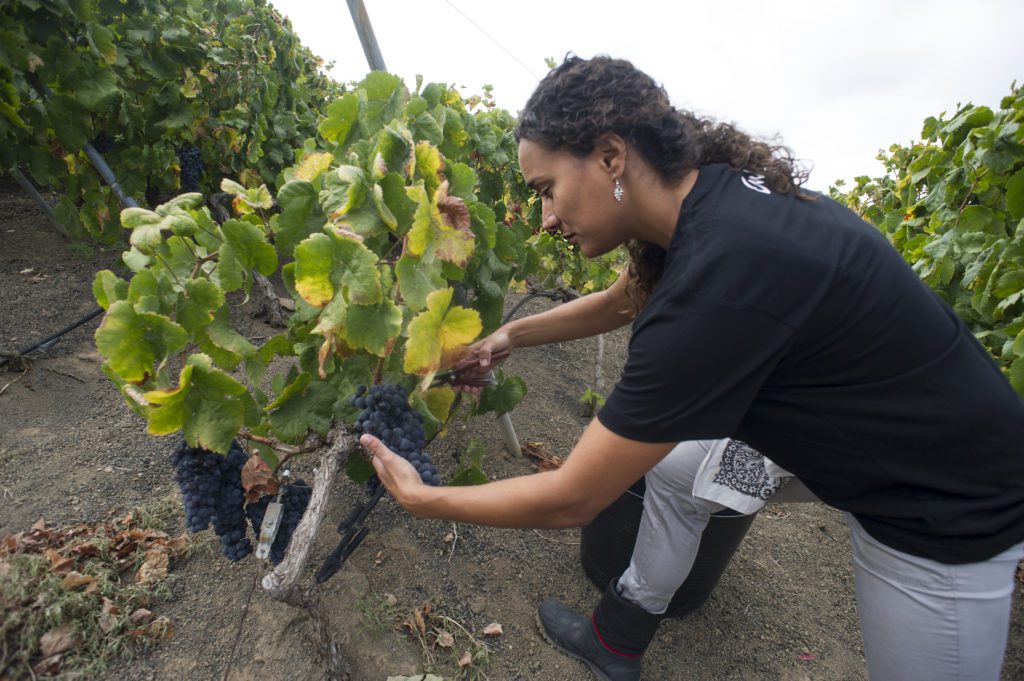It’s no secret that many industries in the have been historically difficult for women to work in, including the wine profession. At one-point women were prohibited from working in wineries at all! But as time moved forward, things began to change. Women have started a worldwide revolution in the wine industry and to celebrate International Women’s Day, we’ve collated some of these women’s stories. But remember, the women mentioned below are just the tip of the iceberg…
Past Discrimination Against Women in the Wine Industry
The Canary Islands have cultivated vines and harvested grapes since the 15th century. Until late in the twentieth century, the Canarian wine industry was dominated by men. Even if a woman inherited a winery, there was a law which meant control had to be passed to a man. For example, La Isleta, the centennial winery in Tenerife, has been in the hands of the same family since February 18, 1868, when Tomás González Julián bought the estate from Lucía Hidalgo Álvarez who had acquired the property by parental inheritance but was unable to make use of the land herself.
Further discrimination against women can be seen until recently, as the belief persisted that woman should not enter a winery because, if they did so during menstruation, the wine would spoil. Signs into wine cellars would often read ‘No Women. No Smoking’.
However, in recent times things have changed within the Canarian wine industry, and now there are a number of successful wineries in the Canary Islands run by women.
Pictured: Tamara Cruz, Mondalón Winery
Canarian Women’s Stories
Eufrosina Pérez runs a winery called El Níspero (situated at 1,250 metres above sea level on the island of La Palma) which in 1999 rose to fame with the first monovarietal white albillo creole grape bottled and labelled on the archipelago. With only two daughters – and with the law changed regarding inheritance – when Pérez’s father grew old, he didn’t have any choice but to allow his daughters to enter his winery and help him. “He had to value his daughters,” says Pérez. The men “had got used to having parties without being interrupted by women,” she adds. Not anymore.
Another high-altitude winery run by an incredible woman is Agala, the Bentayga Bodega in Gran Canaria (situated at 1,295 metres above sea level). “It was my father who convinced me,” Sandra Armas says. “My interest was sparked during the pruning season in 2008 … my father took advantage and quickly asked me [to take charge]”.
Mondalón is another wine cellar in Gran Canaria managed by a woman, Tamara Cruz. “I started when I was twelve years old. For me [the wine business] was like a game that my family played. A kind of hobby that took shape over time,” says Tamara. Cruz studied Hotel Management and Tourism. “I wanted to combine the winery with my work in tourism and my studies of wine and wine tasting. Of course, during the holidays, I went back for the grape harvest. I was always eager to learn, improve my knowledge,” Cruz adds.
Malvasía is one of the Canary Islands most recognised wines. Restaurants such as the highly esteemed Celler Can Roca chose Malvasía wines such as Matías and Torres on their menu. On the Matías and Torres winery in La Palma another woman runs the show. Before she took over, Victoria Torres’s family had been running the winery for generations. Torres explains with her father by her side that despite the great progress that has been made in the industry much can still be done to help women. “When it comes to the [vital] decision as to when to harvest, gender still carries weight,” she says.
Luckily with so many women in positions of power now, the final stages of the women’s wine revolution won’t be long in the making…
For more information on wineries in the Canary Islands, please visit www.hellocanaryislands.com
ENDS
IMAGES: https://www.dropbox.com/sh/96nouhwqenviei3/AAAIzH2nQdwOr_pyeoG2SG8Wa?dl=0
For more information on the Canary Islands please contact Ali Finnegan ali@travelmedia.ie


